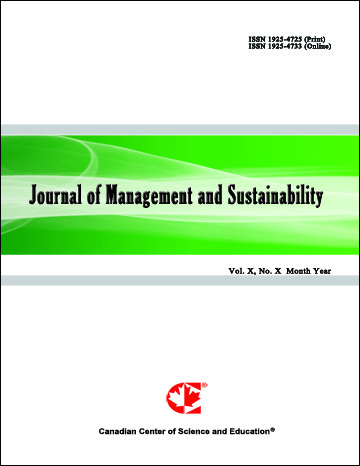Universalism and Utilitarianism, Two Worlds Apart or Inextricably Linked?
- Tan Seng Teck
- Liau Chee How
- Nanthakumar Karuppiah
- Chang Jau Ho
Abstract
Most authors and researchers consistently perceive ethics as being invariably divided into two clearly discernible divisions. The Kantian categorically imperative and universalistic divinity prescribes a somewhat non-negotiable and positivistic duty based maxim that guide the actualization of altruism. Conversely, the contemporary but more relative utilitarian approach advocates that an action that produces the greatest wellbeing of good for the greatest number is undeniably the ethical one. Clearly, it makes little sense and very negligible contribution to literature if corporations are continuously misled to believe that such strict and fervent dichotomy exist. On one hand, business firms in this globalized era are increasingly pressured to comply with emerging universalistic international laws. On the other, business firms cannot remain entirely altruistic. Corporations greatly need the flexibility and capability to relate dissimilar cultural contents and moral distorts. This paper maintains that there is an inextricable link between universalism and utilitarianism. The association between the two is at best complex and intricate. Business firms commonly usurp a utilitarian slant where relativity and ability to adapt is pivotal. However, a firm is estopped from usurping utilitarianism if a firm’s conduct falls below the threshold and minimum content of morality. This would immediately instigate a punctuated equilibrium in the firm triggered through a tsunamic impact, causing the firm to refresh into a universalistic mode. This punctuated equilibrium is frequently activated by external factors that are adequately vigorous to refresh and reset the moral values of a firm. Consider Shell’s defensive posture over the Brent Oil Spar allegation which left the firm with diving stock value and tarnished branding. Shell since then has taken a more Kantian receptive posture of apologizing for their catastrophic mistakes which resembled a renewed commitment to the betterment of human kind. This paper contributes to better the understanding of this ethical transition that firms might experience in their course of organization life cycle and how it can be managed tactfully.
- Full Text:
 PDF
PDF
- DOI:10.5539/jms.v8n1p13
Journal Metrics
Google-based Impact Factor (2021): 1.54
h-index (July 2022): 37
i10-index (July 2022): 147
h5-index (2017-2021): 12
h5-median (2017-2021): 19
Index
- Academic Journals Database
- ANVUR (Italian National Agency for the Evaluation of Universities and Research Institutes)
- CAB Abstracts
- CNKI Scholar
- EconBiz
- Excellence in Research for Australia (ERA)
- GETIT@YALE (Yale University Library)
- Harvard Library
- HeinOnline
- Infotrieve
- JournalTOCs
- LOCKSS
- MIAR
- PKP Open Archives Harvester
- RePEc
- Scilit
- SHERPA/RoMEO
- Stanford Libraries
- UCR Library
Contact
- Evelyn XiaoEditorial Assistant
- jms@ccsenet.org
